Wget
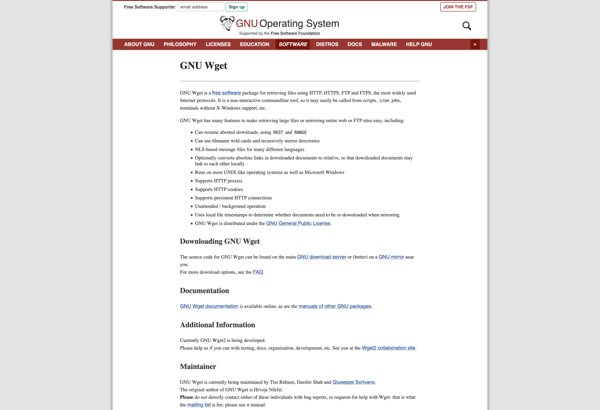
Wget: A Simple & Reliable Command-Line Utility
A command-line utility for non-interactive downloading of files from the web, supporting various protocols, recursive downloads, and resuming interrupted downloads.
What is Wget?
Wget is a command-line utility designed for non-interactive downloading of files from the internet. Recognized for its simplicity, reliability, and versatility, Wget has become a fundamental tool for users and system administrators seeking an efficient way to fetch files, mirror websites, or automate downloading tasks. One of Wget's primary strengths is its support for various protocols, including HTTP, HTTPS, FTP, and FTPS. This broad protocol compatibility ensures that Wget can be utilized for fetching files from a wide range of servers and services on the web. Wget's recursive downloading capability makes it an effective tool for mirroring websites or fetching entire directory structures. Users can mirror complete websites for offline viewing or retrieve specific file types from a server, making it a versatile choice for web scraping and archiving purposes. The software supports the ability to resume interrupted downloads, adding to its reliability in scenarios where connections may be unstable. Users can initiate downloads, pause them, and resume later without losing progress, ensuring efficient handling of large files. Wget's straightforward command-line interface allows users to easily integrate it into scripts and automated workflows. While it may have a steeper learning curve for beginners, its simplicity and flexibility make it a preferred choice for users who value command-line efficiency. As an open-source tool, Wget benefits from ongoing community contributions, ensuring compatibility with modern web technologies and the inclusion of new features. Whether used for simple file downloads, mirroring websites, or automated tasks, Wget remains a reliable and widely-used utility in the world of command-line downloading.
Wget Features
Features
- Command-line interface
- Support for HTTP, HTTPS, and FTP protocols
- Recursive downloading of sites
- Resuming of interrupted downloads
- Mirroring of websites for offline browsing
- Non-interactive downloads
- Customizable with scripts and plugins
Pricing
- Open Source
- Free
Pros
Cons
Official Links
Reviews & Ratings
Login to ReviewThe Best Wget Alternatives
Top Os & Utilities and Command Line Utilities and other similar apps like Wget
Here are some alternatives to Wget:
Suggest an alternative ❐Aria2
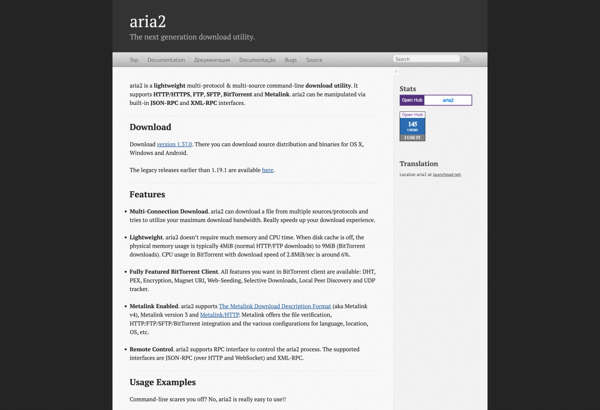
HTTPie for Terminal

HTTrack
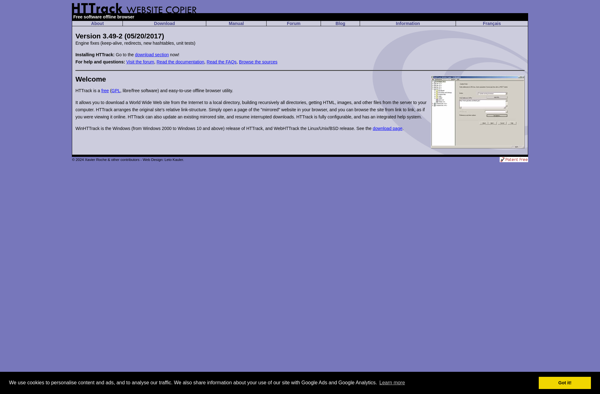
SiteSucker
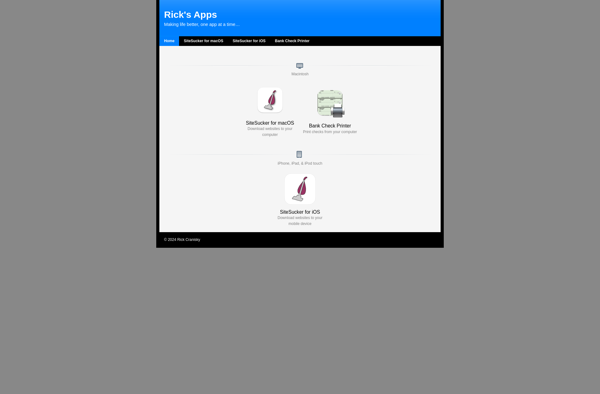
WebCopy

CURL

Web Downloader (Chrome Extension)

VisualWget

Lftp

FlareGet

ArchiveBox

WebSiteSniffer

WebCopier

KGet
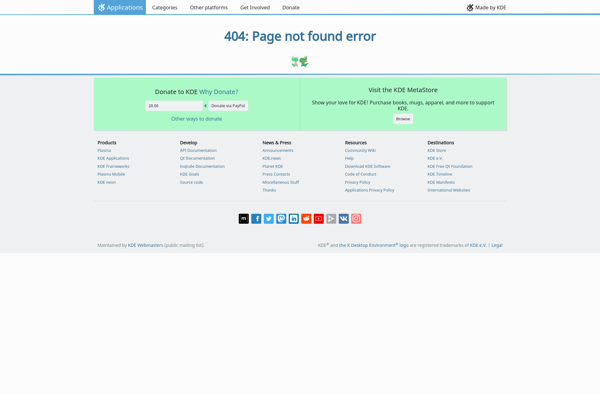
Wget2

WebZip

Grab-site
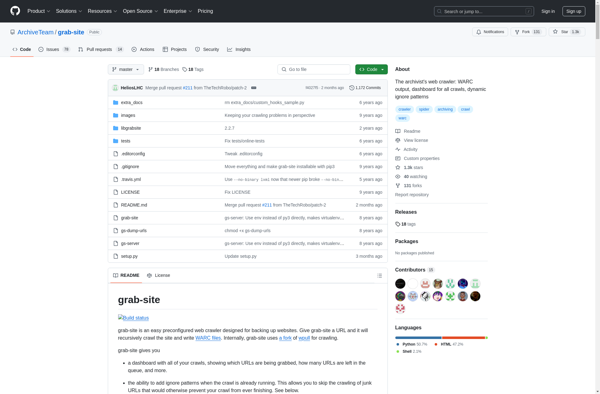
Varia
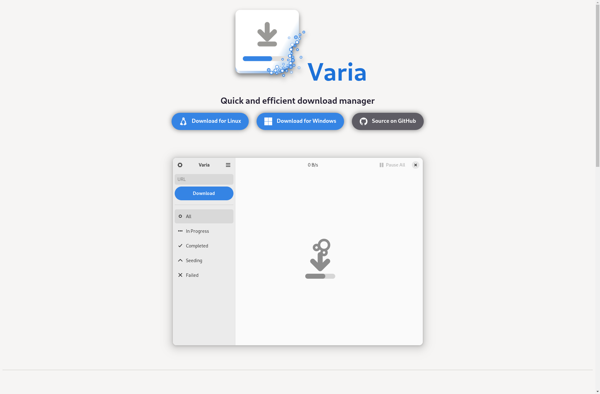
Offline Pages Pro

Cliget
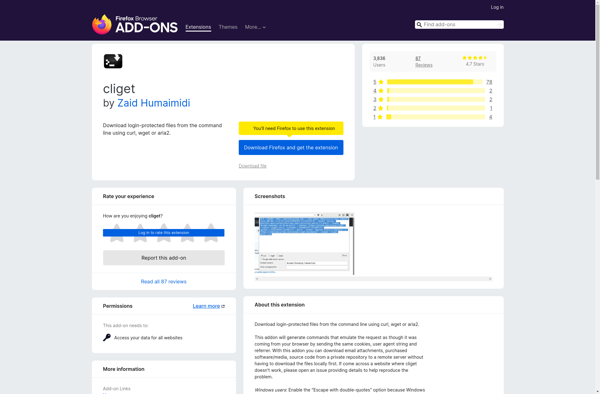
Webui-aria2
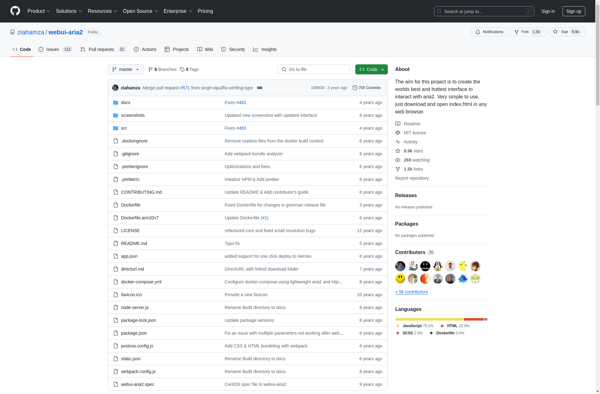
PageArchiver
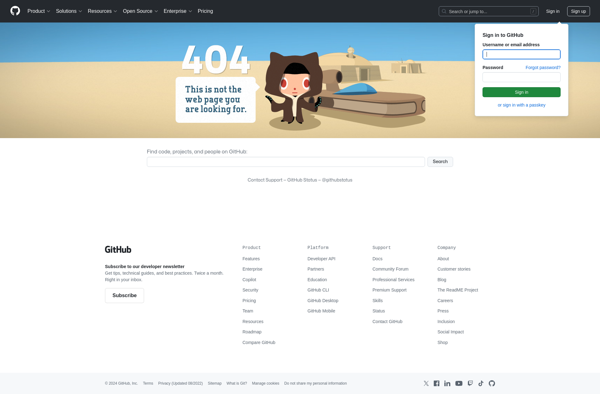
SurfOffline
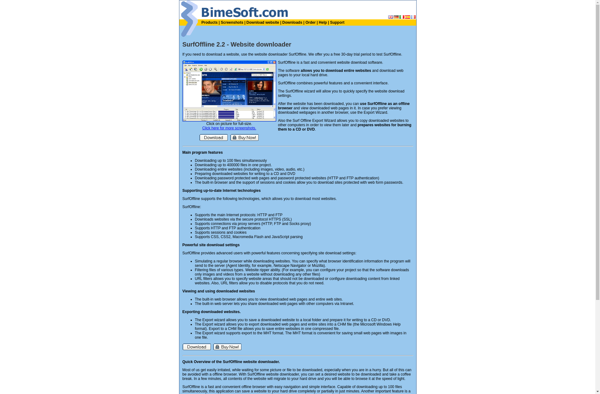
Site Snatcher
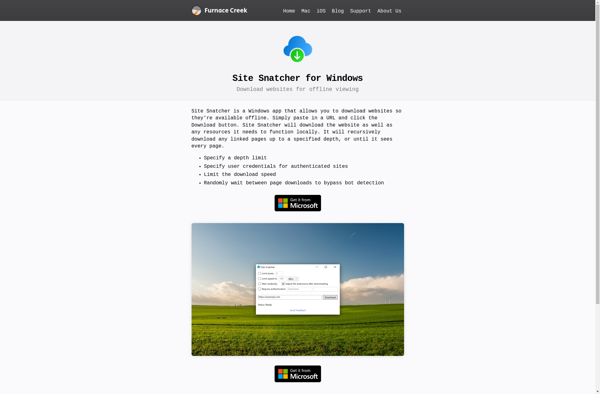
SitePuller

NCollector Studio
Progressive Downloader

AWGG
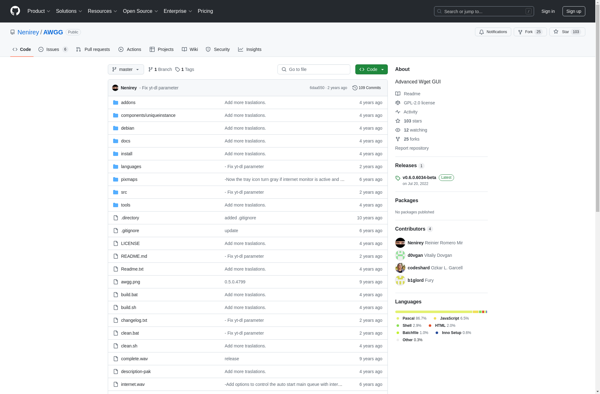
Kurly
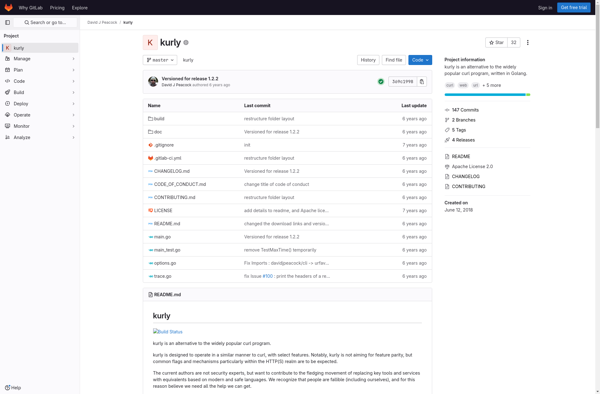
ItSucks
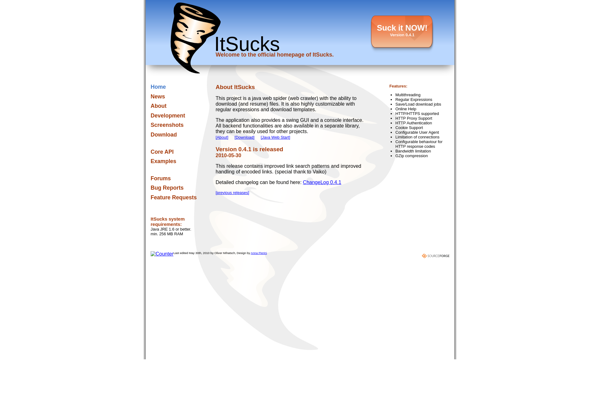
Winwget
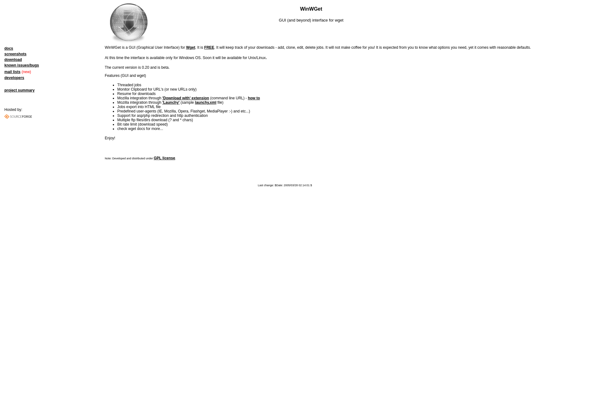
Wysigot

PageFreezer

Web Dumper

WebsiteToZip
AriaNg
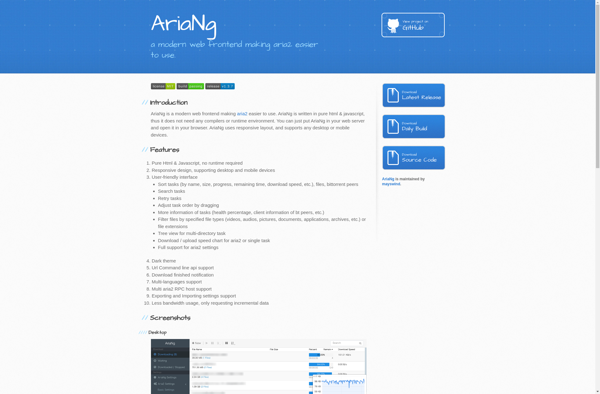
Wpull
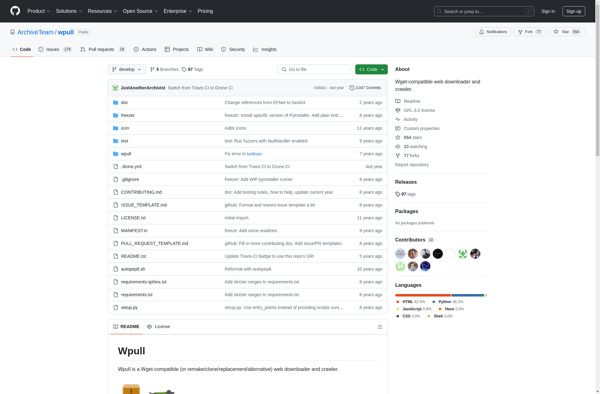
WinWSD
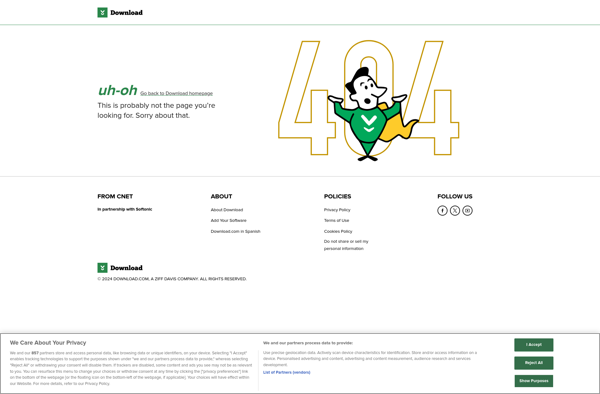
Blue Crab
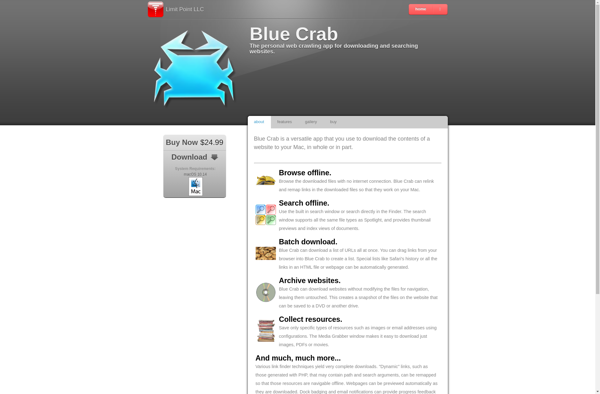
Aria2 for Android

Downloader for X
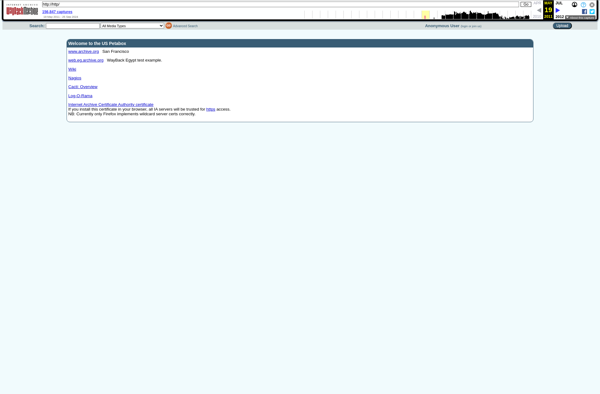
Steadyflow
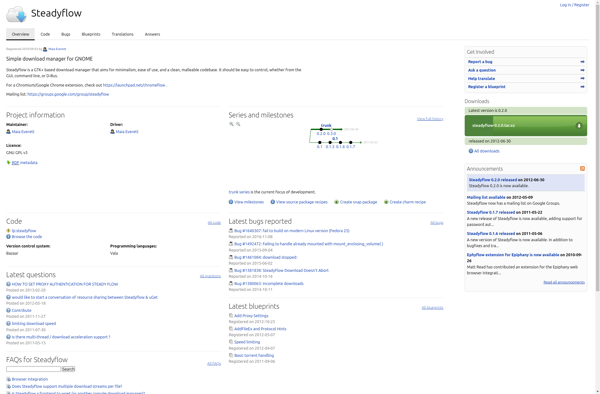
Gwget
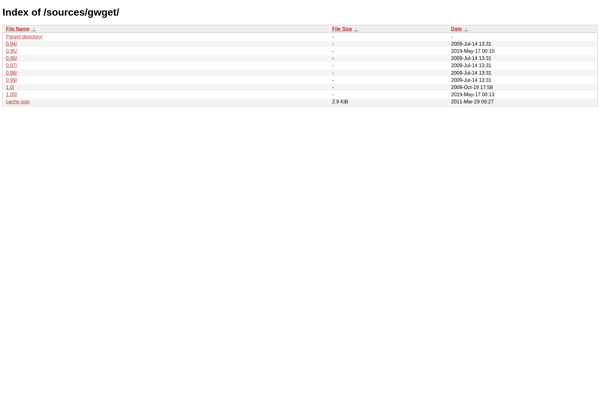
Mulk
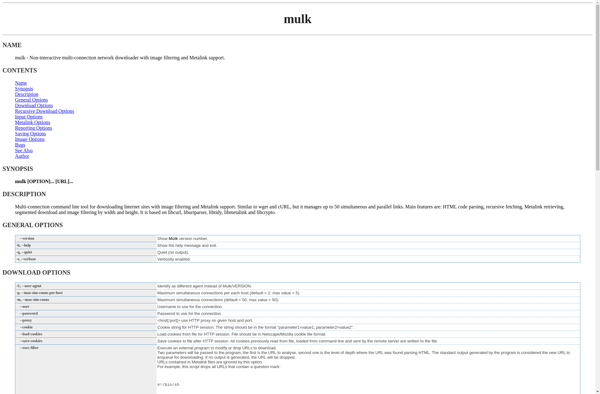
ProZilla
